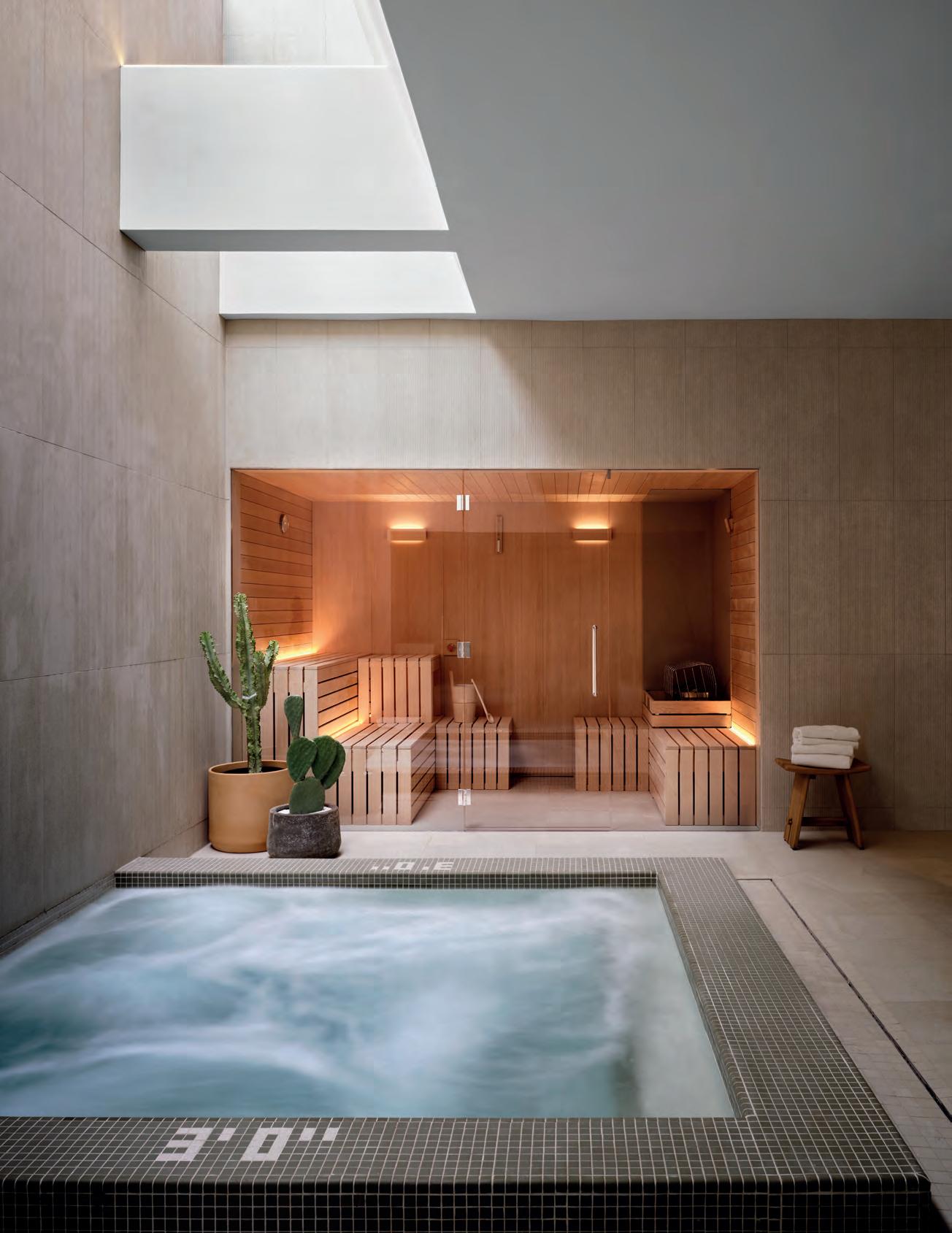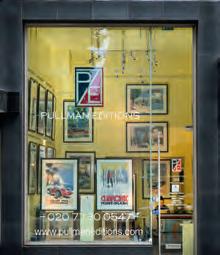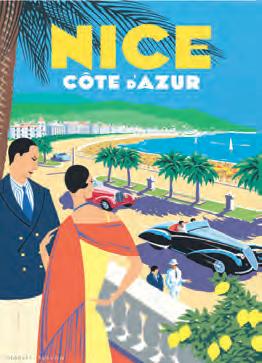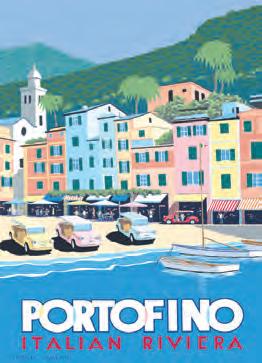
3 minute read
LAURENT GARDINIER
President, Relais & Châteaux
SPEARHEADING AN ASSOCIATION OF ALMOST 600 HOTELS AND 800 RESTAURANTS, LAURENT GARDINIER IS ON A MISSION TO CONNECT PEOPLE WITH PLACES
Advertisement
Words: Richard Brown romoting the art de vivre fills me with joy.” As the co-owner of the château-style Domaine Les Crayères in Reims since 2000, and proprietor of Le Taillevent, that two-Michelin-star Parisian bastion of French classicism, since 2014, Laurent Gardinier has been advocating the ‘art of living’ for more than two decades. Since January 2023, however, that commitment to championing the finer things has gone from a personal passion to something of an official oath.
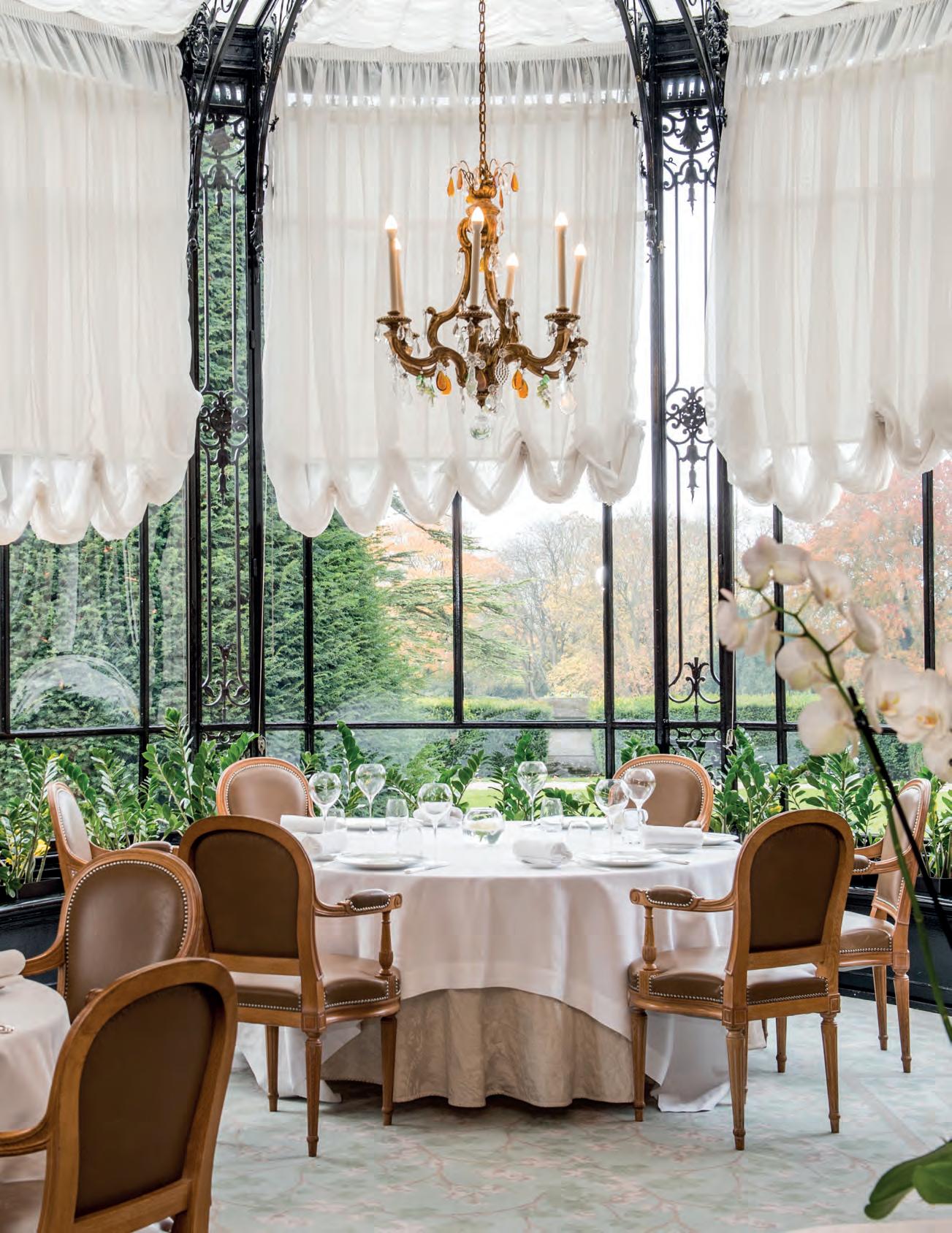
At the start of this year, Gardinier became President of Relais & Châteaux, an association of luxury hotels that, in 2014, pledged to UNESCO that it would ‘make the world a better place through food and hospitality’. ‘Elevating the fine art of living is essential for people and the planet,’ said the group. It’s now Gardinier’s job to deliver on that promise.
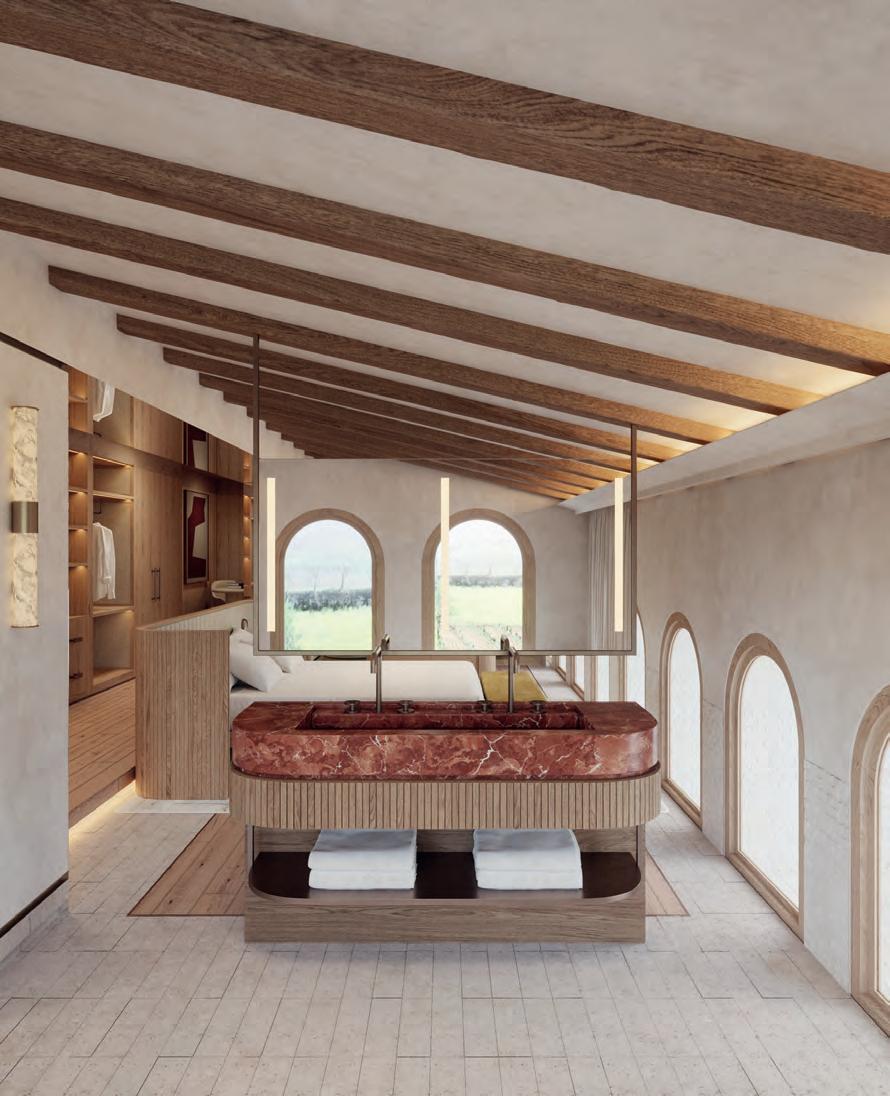
Often denoted by bronze plaques in their lobbies, or golden crown pins on the lapels of staff, there are currently 580 hotels and restaurants, spread out across five continents, that have successfully applied to join the Relais & Châteaux portfolio. To do so, a hotel must have ‘distinguishing features’ and have demonstrated a dedication to enhancing its local environment. All properties are independent. Most are family-owned.
Here, Gardinier, a former officer in the French navy, talks travel trends, the power of association, and what makes a world-class hotel.
Explain to us how Relais & Châteaux works? We receive around 500 applications a year. We accept around 25 of those, and around 25 properties leave. We work with all of the hotels within the portfolio, helping with marketing, communication, offering digital support. We have an app, offer a reservation platform through our website, and provide printed guides in each hotel room in French and English. For that we charge a commission.
What must a hotel do to be accepted into the Relais & Châteaux portfolio? It mustn’t be pretending to be a world-class hotel. It must do everything it can to actually be one. That means being genuine. Upholding the local culture, respecting the local land, being fully included in the local environment and history. Striving for excellence. As always, everything is in the detail. Pay attention to service. Travellers expect perfect service these days. It has nothing to do with money or prices. Prioritise those two things: attention to detail and great service.
What, then, makes a ‘world-class’ hotel? A mixture of many factors. It’s never just one thing. There’s the physical; the location, the setting, the landscape. Then the historical; the history of the hotel or resort, the buildings, the architecture. And then the human; the service, the attention to detail, the people. Of course, there is also the food and drink, which a lot of our hotels are famous for – we currently have more than 300 Michelin stars within our portfolio.
What do you predict as being the biggest trends in luxury travel in the next two years? I think there will be two key themes. The first, is guest experiences. Travellers now want more from their holidays and from the hotels in which they stay. They want to experience local cultures and meet local people. Relaxing is important, but people want to do things. The second aspect will be sustainability. We will see hotels doing more to reduce their carbon footprint, there will be more green initiatives, which, again, is something guests will expect.
What does the Relais & Châteaux group do to encourage sustainability among its members? Firstly, we try to prevent greenwashing. All of our members are expected to act responsibly. To eliminate their use of single-use plastic, for example. Of course, sustainability means different things in different places. So we work with hotels and try to set realistic goals. We ask different questions of each hotel and we expect different answers. Sustainability means many different things. It can be to do with efficiency, seasonality. Goals can be environmental, social, cultural. I am focused on reducing our own environmental footprint with economically realistic solutions. relaischateaux.com
What is the best part of your job? Meeting people. The intellectual aspect. Meeting people who are passionate about the industry and the hotels they work at. Large-scale hospitality groups tend to be more interested in the finance side of things. It is the human side of this business, promoting the art de vivre through our beautiful properties, that makes it so enjoyable.
Which is your favourite city? That’s a difficult one. I really love London. The gastronomy there is incredible. But New York is where I’d choose to live.
How’s the economic outlook from Relais & Châteaux’s point of view? You have to balance realism with optimism. But I am very optimistic. It helps that bookings are looking very healthy – 2023 could be a record year.
What do you hope people associate with the name ‘Relais & Châteaux’? Excellence. Whether that’s architectural, gastronomic or in terms of service. I believe people book hotels because of the ‘Relais & Châteaux’ stamp, but we are not content with just being a reservation platform. We provide our properties tools so they can participate in the development of a better world.
Which is your favourite recent addition to the Relais & Châteaux portfolio? There’s a property in Germany called Purs, in Andernach. It has just 11 rooms and suites, with chef Yannick Noack at the helm of the culinary offering, and Axel Vervoordt as the interior designer. It’s very unique and represents everything that we look for in a Relais & Châteaux property.
